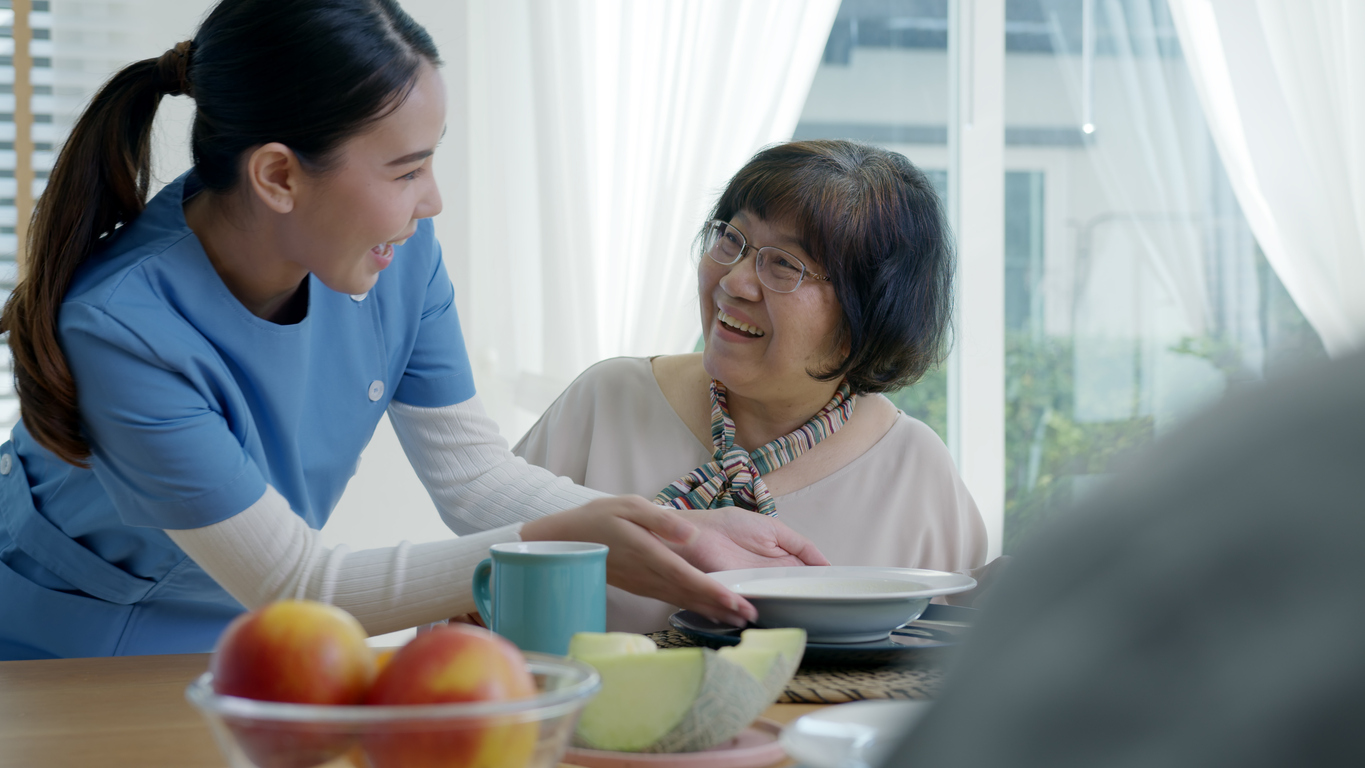Part One in a Two-Part Series
Mom lives alone, and it’s becoming apparent that she can no longer do specific tasks around the house by herself. While you know she needs help, you want to ensure you find a caregiver you and your mom can trust. But first, it’s essential to determine the type of assistance she needs and then find the person who can best meet those requirements. Unfortunately, many adults struggle with these questions when trying to find the proper home care for their loved ones, and the decision-making process can be overwhelming. Fortunately, FirstLantic, a company devoted to quality home healthcare, provides guidance to make finding the best solution easier.
There are many reasons someone needs help at home, ranging from support with daily activities like cooking meals to personal care assistance to medical treatment. You might assume that the same caregiver can perform all these services, but that is not necessarily the case. There are regulations and licensing requirements that dictate the type of care that a caregiver can provide. There are three types of caregivers.
Also known as personal caregivers or companions, non-certified aides provide care services for seniors that exclude medical treatment or activities requiring medical training. This can include:
- Housekeeping
- Meal preparation
- Laundry
- Companionship
- Transportation
The distinct difference between a personal caregiver and a companion is that a caregiver has formal training to provide more direct personal care services. Companions are not allowed to provide hands-on assistance to their clients and are more restricted to household duties, transporting seniors to doctor appointments, grocery shopping, etc.
If a loved one needs supervision and friendship more than physical support, then a companion would be best for them. Otherwise, a personal caregiver can perform all the same duties as a companion and long-term personal care services such as bathing and grooming. Caregivers and non-certified aides must have a home health aide certification from a nurse-supervised training program.
A companion typically works part-time, for a few hours at a time, a couple of days per week, while a non-certified aide typically works longer shifts, such as a morning or night shift, on a more consistent basis. Non-certified aides may also be contracted for full-time work.
- Certified aides
Also known as Certified Nursing Assistants (CNAs) or Home Health Aides (HHAs), certified aides can be employed by both medical home health agencies and non-medical home care agencies. They provide all of the activities of daily living (ADL) that non-certified aides can provide, as well as the following:
- Physical assistance getting in and out of bed
- Personal grooming
- Competency in making observations on a patient’s condition and reporting to professionals
- CPR
Certified aides can be covered by insurance when employed by Medicare/Medicaid licensed home health agencies, while non-certified aides aren’t typically covered by Medicare or private insurance when provided through a non-medical home care agency. CNAs and HHAs are required to complete similar training, which varies by state, but typically includes a training course and a written and practical exam. If your loved one needs physical assistance, a certified aide would be more beneficial than a non-certified aide.
- Nurses
Also known as Licensed Practice Nurses (LPNs) and Registered Nurses (RNs), nurses fulfill the broadest range of care and provide the services of a certified aide, as well as:
- Prefilling medication boxes
- Administering insulin
- Intravenous medications
- Wound care
- Changing catheters
Nurses must complete a college program to obtain their nursing licenses, and LPNs work under an RN’s or physician’s supervision. Nurses would be the best fit for an aging senior dealing with an illness or injury requiring constant care while still preferring to stay at home.
Once you decide which service is best for your loved one, the next step is deciding whether you need someone overnight, during the day, on an hourly basis, every weeknight or weekend, and so forth. The final step is choosing a home care agency that can provide you with everything you need to make you and your loved one feel comfortable with the transition. Part 2 of this series will offer a step-by-step guide to choosing the right agency.
A full-service home healthcare organization can provide overnight, daytime, and hourly care from nurses, home health aides, and companions and determine what types of care work for your loved one. Best of all, if you want to change your type or level of care, you can do it with one organization.
To learn more about home healthcare options at FirstLantic Healthcare, click here.
To read more FirstLantic blogs, click here.
To find out about career opportunities at FirstLantic, click here.
 AVAILABLE 24 HOURS A DAY/7 DAYS A WEEK
AVAILABLE 24 HOURS A DAY/7 DAYS A WEEK Careers
Careers







